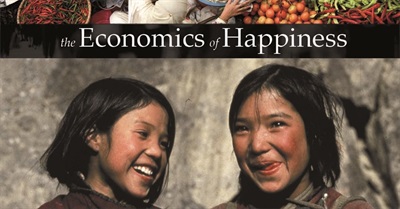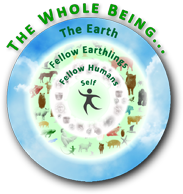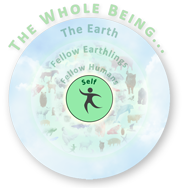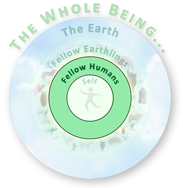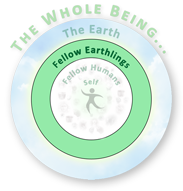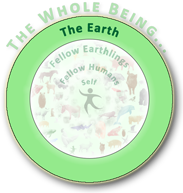Resource Library
To narrow down the list to only resources personally endorsed by CNCL, tick the “CNCL-Endorsed” box.
Please let us know if you find any errors or dead links.
Click here
for a list of…![]()
Broad-Coverage Independent News
& Media Sites
“The United States and the global status quo are rapidly approaching a breaking point. Viewed from the scale of history we’re milliseconds away. “ “The Compassionate Road website is a free resource for anyone interested in creating more healthy, sustainable and kind habits. Gemma is a Qualified Naturopath, yoga teacher and co-author of The Compassionate Kitchen. She has been involved in the making of a documentary and is an Ambassador for the animal protection group, Voiceless. She regularly speaks at events and hosts a range of workshops from healthy cooking, to how and why we can be more mindful around our diet and lifestyle choices.” “The Corbett Report is an independent, listener-supported alternative news source. It operates on the principle of open source intelligence and provides podcasts, interviews, articles and videos about breaking news and important issues from 9/11 Truth and false flag terror to the Big Brother police state, eugenics, geopolitics, the central banking fraud and more.” “The Cornucopia Institute, through research and investigations on agricultural and food issues, provides needed information to family farmers, consumers and other stakeholders in the good food movement and to the media. We support economic justice for the family-scale farming community – partnered with consumers – backing ecologically produced local, organic and authentic food.” Film: “The Corporation, Canada’s most successful documentary in history, is the winner of 26 international awards and 10 Audience Choice Awards including the 2004 Sundance Film Festival. The film charts the development of the corporation as a legal entity from its genesis to unprecedented legal protection stemming from creative interpretation of the Fourteenth Amendment to the United States Constitution, that is from its origins as an institution chartered by governments to carry out specific public functions, to the rise of the vast modern institutions entitled to some of the legal rights of a “person.” One central theme of the documentary is an attempt to assess the “personality” of the corporate “person” by using diagnostic criteria from the DSM-IV; Robert Hare, a University of British Columbia Psychology Professor and FBI consultant, compares the modern, profit-driven corporation to that of a clinically diagnosed psychopath.” Film: “The Corporation is today’s dominant institution, creating great wealth but also great harm. This 26 award-winning documentary examines the nature, evolution, impacts and future of the modern business corporation and the increasing role it plays in society and our everyday lives.” “A dark comedy remix mash-up bonanza about the end of industrial civilization. featuring clowns, car crashes, explosions, super heroes, and xylophones and much, much more ….. Based on the Book by Nafeez Mosaddeq Ahmed Directed by Dean Puckett Animations by Lucca Benney” Danish “The object of the organisation is to work for the abolition of all painful experiments on animals.” Book: “Here, from a brilliant young writer, is a paradigm-shifting history of both a utopian concept and global movement—the idea of the Third World. The Darker Nations traces the intellectual origins and the political history of the twentieth century attempt to knit together the world’s impoverished countries in opposition to the United States and Soviet spheres of influence in the decades following World War II. Spanning every continent of the global South, Vijay Prashad’s fascinating narrative takes us from the birth of postcolonial nations after World War II to the downfall and corruption of nationalist regimes. A breakthrough book of cutting-edge scholarship, it includes vivid portraits of Third World giants like India’s Nehru, Egypt’s Nasser, and Indonesia’s Sukarno—as well as scores of extraordinary but now-forgotten intellectuals, artists, and freedom fighters. The Darker Nations restores to memory the vibrant though flawed idea of the Third World, whose demise, Prashad ultimately argues, has produced a much impoverished international political arena.” “Insect abundance is plummeting with wild abandon, worldwide! Species evolve and go extinct as part of nature’s normal course over thousands and millions of years, but the current rate of devastation is off the charts and downright scary.” Film: “When a handful of West Virginia residents discover DuPont has been pumping its poisonous Teflon chemical into the air and public water supply of more than 70,000 people, they file one of the largest class action lawsuits in the history of environmental law. As the citizens of Parkersburg rise up against the forces that polluted their town, the story builds out to dozens of other American cities. In fact, as many as 110 million Americans may be drinking water tainted with PFAS chemicals. Exposure to this class of chemicals has even become a global phenomenon, spreading to places like Italy, the Netherlands, and China. Parkersburg is ground zero for this story, but this clearly is not about one place or one chemical: because of the power of the chemical lobby, PFOA is one of more than 80,000+ untested chemicals that have been approved for use, their dangers unknown.” Book: “In this riveting anatomy of authoritarianism, acclaimed journalist William Dobson takes us inside the battle between dictators and those who would challenge their rule. Recent history has seen an incredible moment in the war between dictators and democracy—with waves of protests sweeping Syria and Yemen, and despots falling in Egypt, Tunisia, and Libya. But the Arab Spring is only the latest front in a global battle between freedom and repression, a battle that, until recently, dictators have been winning hands-down. The problem is that today’s authoritarians are not like the frozen-in-time, ready-to-crack regimes of Burma and North Korea. They are ever-morphing, technologically savvy, and internationally connected, and have replaced more brutal forms of intimidation with subtle coercion. The Dictator’s Learning Curve explains this historic moment and provides crucial insight into the fight for democracy.” Book: “The Dietitian’s Guide to Vegetarian Diets: Issues and Applications provides the most up-to-date information on vegetarian diets. Written for dietitians and other health care professionals, the Third Edition can be used as an aid for counseling vegetarian clients and those interested in becoming vegetarian or serve as a textbook for classroom study for students who have completed introductory coursework in nutrition. Evidence-based and thoroughly referenced, this text includes case-studies, sample menus, and counseling points to help students apply material to the real world.” “I’m Joshua Katcher. I started The Discerning Brute, the world’s first men’s vegan lifestyle website, over 10 years ago. On this website you’ll discover food, fashion, sports and culture for the ethically handsome man. “ “The Dodo is the digital media brand for animal people. At The Dodo, we’re committed to creating visually compelling, entertaining, highly shareable animal videos and stories. We’re a halo brand for everyone who loves animals from people who are obsessed with their pets all the way to committed animal advocates. We want our audience to connect with animals through our stories, and feel empowered to help where help is needed.” “The Doomsday Clock is a design that warns the public about how close we are to destroying our world with dangerous technologies of our own making. It is a metaphor, a reminder of the perils we must address if we are to survive on the planet. When the Doomsday Clock was created in 1947, the greatest danger to humanity came from nuclear weapons, in particular from the prospect that the United States and the Soviet Union were headed for a nuclear arms race. The Bulletin considered possible catastrophic disruptions from climate change in its hand-setting deliberations for the first time in 2007.” Book: “The Driftless Reader gathers writings that highlight the unique natural and cultural history, landscape, and literature of this region that encompasses southwestern Wisconsin and adjacent Minnesota, Iowa, and Illinois. The more than eighty selected texts include writings by Black Hawk, Mark Twain, Laura Ingalls Wilder, Frank Lloyd Wright, Aldo Leopold, David Rhodes, and many other Native people, explorers, scientists, historians, farmers, songwriters, journalists, and poets. Paintings, photographs, maps, and other images complement the texts, providing a deeper appreciation of this region’s layered natural and human history.” “A central goal of the educational outreach program at Foundation Earth is to promote “earth consciousness” in the citizens of all nations. A critical aspect of this work is to instill in the minds of the young an identification with and desire to protect the planet. An effective and achievable tool to accomplish this a major campaign to have a “Pledge of Allegiance to the Earth” be adopted in tens of thousands of elementary schools, and recited daily by many millions of young students at the beginning of each school day. The campaign will initially be focused on the United States but eventually will expand to international outreach. The Earth Pledge: I pledge allegiance to the Earth. To its mountains, rivers, soil and sky. One planet, irreplaceable. To be cherished and protected by all.” “The Ecologist is the world’s leading environmental affairs platform. We publish daily, bringing the latest news, comment, features and reviews to your screens – for free. You will find news about successful environmental campaigns, stories about advances in academic ecology and discursive articles touching on theoretical approaches that help us understand nature and the impact of our societies on the natural environment.” Film: “Economic globalization has led to a massive expansion in the scale and power of big business and banking. It has also worsened nearly every problem we face: fundamentalism and ethnic conflict; climate chaos and species extinction; financial instability and unemployment. There are personal costs too. For the majority of people on the planet life is becoming increasingly stressful. We have less time for friends and family and we face mounting pressures at work. The Economics of Happiness describes a world moving simultaneously in two opposing directions. On the one hand, government and big business continue to promote globalization and the consolidation of corporate power. At the same time, all around the world people are resisting those policies, demanding a re-regulation of trade and finance—and, far from the old institutions of power, they’re starting to forge a very different future. Communities are coming together to re-build more human scale, ecological economies based on a new paradigm — an economics of localization. We hear from a chorus of voices from six continents including Vandana Shiva, Bill McKibben, David Korten, Michael Shuman, Juliet Schor, Zac Goldsmith and Samdhong Rinpoche – the Prime Minister of Tibet’s government in exile. They tell us that climate change and peak oil give us little choice: we need to localize, to bring the economy home. The good news is that as we move in this direction we will begin not only to heal the earth but also to restore our own sense of well-being. The Economics of Happiness restores our faith in humanity and challenges us to believe that it is possible to build a better world.”Found 2210 Results
The Coming Collapse + A Positive Course of Action
![]()
The Compassionate Road

The Corbett Report

The Cornucopia Institute

The Corporation
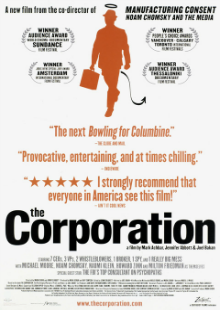
The Corporation (2003)
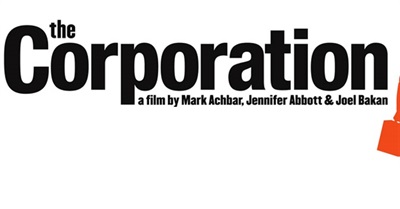
The Crisis of Civilization (2011)
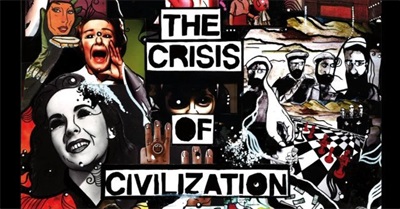
The Danish Society for the Protection of Laboratory Animals
![]()
The Darker Nations: A People’s History of the Third World
The Deathly Insect Dilemma
![]()
The Devil We Know

The Dictator’s Learning Curve: Inside the Global Battle for Democracy
The Dietitian’s Guide to Vegetarian Diets: Issues and Applications
The Discerning Brute
![]()
The Dodo
![]()
The Doomsday Clock
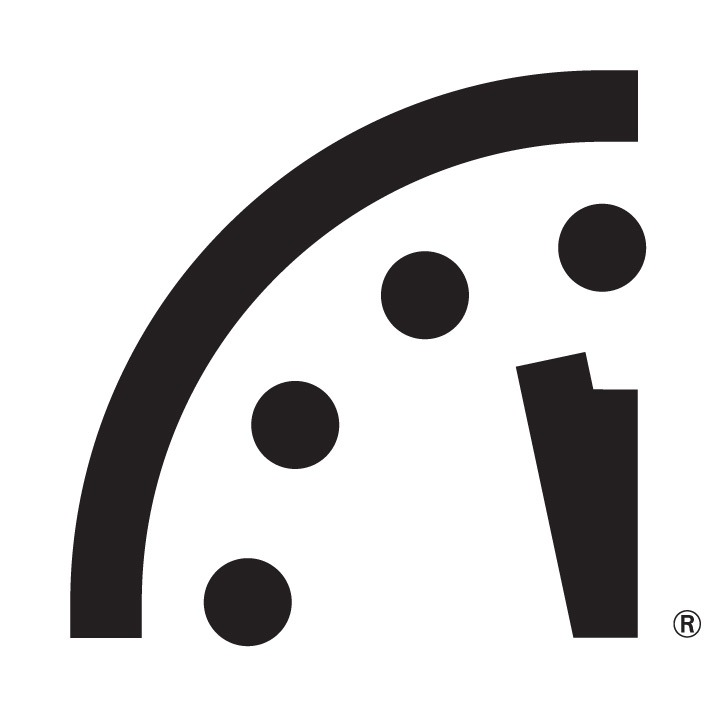
The Driftless Reader
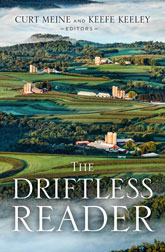
The Earth Pledge

The Ecologist

The Economics of Happiness (2011)
